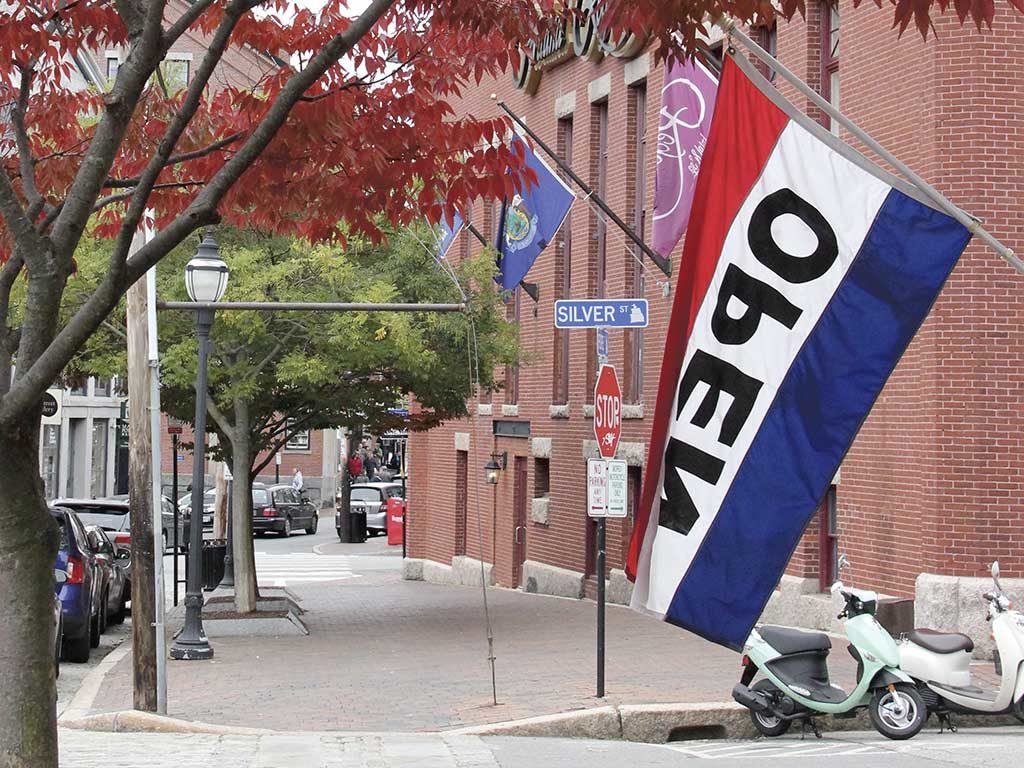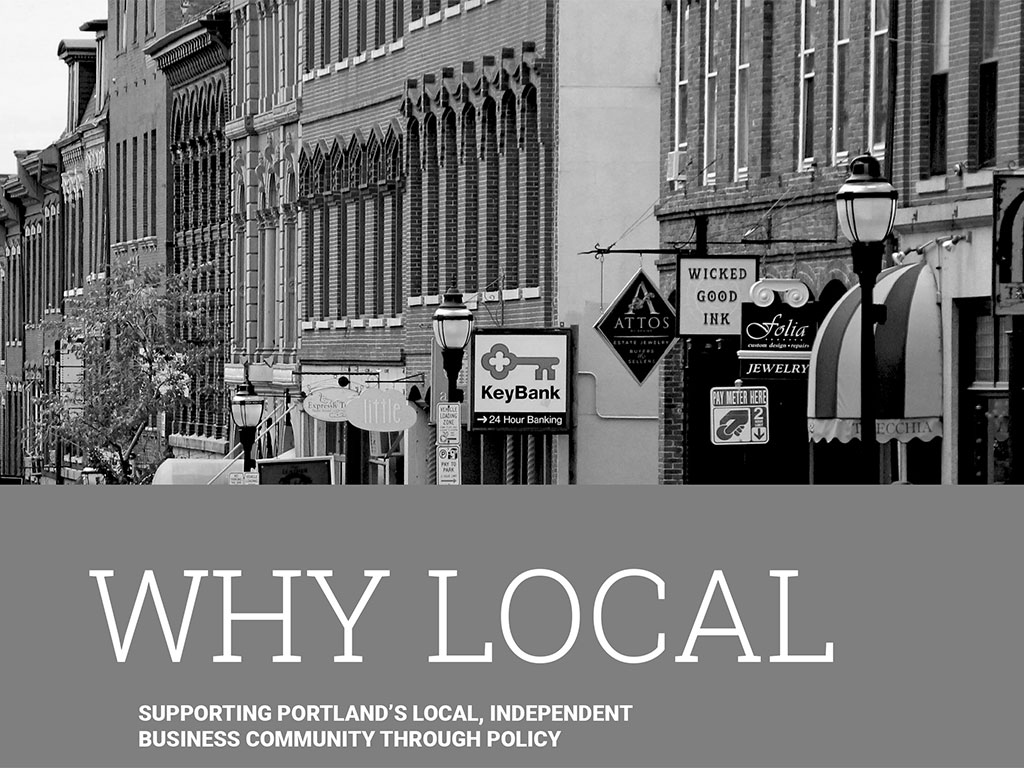Featured Analysis: Shopping local is a great idea, but Portland needs policies that support local, independent businesses, too.
By Tony Zeli

For most, holiday shopping, or any kind of shopping, is not a conscious political act. But where we choose to spend our money does have an impact. And this month Americans are out shopping, pandemic or no. In fact, last year amid the pandemic shoppers spent at an unexpectedly high 8.3 percent over the same period in 2019 to $789.4 billion, according to the National Retail Federation.
And Portlanders are sure to be no different. In fact, finance website Wallethub suggests a holiday budget of $1283 for the average Portlander in a “comfortable” financial position. They based this on our average income, age, and debt. But whatever our budgets may be, shifting even a small amount of our money to local businesses can have an outside impact.
According to Portland Buy Local’s posters that seem ubiquitous around downtown this time of year, 76% more of your money stays in the local community when you shop local. This is because local businesses overall – of course there are individual examples to the contrary – are more generous with wages and benefits, charitable giving, and – although generosity has little to do with it – they tend to pay more in local taxes.
And economics is just one reason to support local businesses. There are social reasons, as well. Here is a look at five ways local, independent businesses build strong communities. The list is from the Institute for Local Self-Reliance, a national research and advocacy organization with offices in Portland.
1. Local small businesses are linked to higher incomes and less inequality.
In 2013, an economist at the Federal Reserve Bank of Atlanta found that counties with larger shares of local small businesses have stronger per capita income growth, faster employment growth, and lower poverty rates.
2. Entrepreneurship fuels job creation.
Cities that achieve higher rates of entrepreneurship and new business creation than the national average are better off. In fact, they generate more jobs, which in turn lifts wages. And it doesn’t have to be all about tech startups. In Maine, we’d be wise to look at other areas from agriculture to outdoor recreation.
3. Independent businesses generate more tax revenue at lower public cost.
Businesses in dense, mixed-use commercial districts generate more tax revenue than sprawling shopping centers. Additionally, their concentration in denser neighborhoods also means less use of public services.
4. Local businesses foster community cohesion and well-being.
Kid you not, there have been studies demonstrating that communities with a greater concentration of small businesses have improved health outcomes. But that is just a start. They also have an easier time retaining residents (especially those with college degrees) and higher levels of civic engagement.
5. Community-scaled businesses reduce pollution and improve environmental sustainability.
It makes sense. People who live in walkable neighborhoods, near small stores, walk more and drive less. They also are more likely to use public transit. These factors combined with a compact, urban core and a thriving business district, compared to a sprawling suburban supercenter setup, is better for the environment.
But, shopping local is just the first step in the process. To really build the diverse, highly livable neighborhoods that we all presumably desire, we need policies from our city to match. No matter how much we spend locally, other factors like rising rents and labor shortages can sink a small business.
To that end, many years ago Portland Buy Local released a report with policy goals to support local, independent businesses. At the time, it got little attention from policymakers or the media. In it, a vision is laid out to make Portland one of the friendliest cities in the nation for independent businesses.
Policy ideas in the “Why Local” report include:

- A cap on the size of stores in certain neighborhoods. Chain stores often require large footprints to meet their goals. Caps on the square footage of stores help to keep a diversity of businesses in a neighborhood. Actually, Portland already makes use of square footage caps in some of its business zoning.
- Incentivize property owners to rent to local businesses. There is a mix of policy tools that can help to achieve this goal, such as property tax credits or fines for unleased space.
- Increase the number of businesses that own real estate. When local business owners own their building, it means stability for the business and the neighborhood.
- Make formula businesses a conditional use. Certainly the most controversial idea, conditional use zoning is already used along the Portland waterfront. Other cities have used conditional use zoning on formula businesses. These are the Walmart’s and McDonalds of the world. Businesses that utilize a “formula” or model from location to location that includes the same logo and offerings. Formula businesses could be required to prove their need within a certain neighborhood before being granted zoning approval. Conditional use zoning would mean increased community feedback in the process when deciding which businesses get to dot our streets.
Currently, Portland’s Department of Planning & Urban Development is working on the City’s Recode Portland effort, reviewing and rewriting the city’s land use codes. It would be smart business for the city to look at the “Why Local” report. It is time to adopt policies that support Portland’s independent business culture.
Tony Zeli is publisher and editor. Reach him at thewestendnews@gmail.com.





